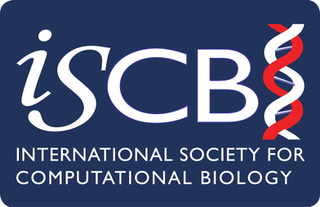Related Research Articles

The American Association for the Advancement of Science (AAAS) is an American international non-profit organization with the stated goals of promoting cooperation among scientists, defending scientific freedom, encouraging scientific responsibility, and supporting scientific education and science outreach for the betterment of all humanity. It is the world's largest general scientific society, with over 120,000 members, and is the publisher of the well-known scientific journal Science.

Food science is the basic science and applied science of food; its scope starts at overlap with agricultural science and nutritional science and leads through the scientific aspects of food safety and food processing, informing the development of food technology.

Probiotics are live microorganisms promoted with claims that they provide health benefits when consumed, generally by improving or restoring the gut microbiota. Probiotics are considered generally safe to consume, but may cause bacteria-host interactions and unwanted side effects in rare cases. There is some evidence that probiotics are beneficial for some conditions, but there is little evidence for many of the health benefits claimed for them.
Prebiotics are compounds in food that induce the growth or activity of beneficial microorganisms such as bacteria and fungi. The most common example is in the gastrointestinal tract, where prebiotics can alter the composition of organisms in the gut microbiome.
The Special Libraries Association (SLA) is an international professional association for library and information professionals working in business, government, law, finance, non-profit, and academic organizations and institutions.
The American Nutrition Association (ANA) is a 501(c)(3) charitable non-profit organization established to encourage the scientific investigation of nutrition and metabolism. The ANA publishes the Journal of the American Nutrition Association and hosts scientific conferences in the US and in Europe.
The Academy of Nutrition and Dietetics is a 501(c)(6) trade association in the United States. With over 112,000 members, the association claims to be the largest organization of food and nutrition professionals. It has registered dietitian nutritionists (RDNs), nutrition and dietetics technicians registered (NDTRs), and other dietetics professionals as members. Founded in 1917 as the American Dietetic Association, the organization officially changed its name to the Academy of Nutrition and Dietetics in 2012. According to the group's website, about 65% of its members are RDNs, and another 2% are NDTRs. The group's primary activities include providing testimony at hearings, lobbying the United States Congress and other governmental bodies, commenting on proposed regulations, and publishing statements on various topics pertaining to food and nutrition.

The New York Academy of Sciences was founded in January 1817 as the Lyceum of Natural History. It is the fourth oldest scientific society in the United States. An independent, nonprofit organization with more than 20,000 members in 100 countries, the academy has a mission to advance scientific research and knowledge, support scientific literacy, and promote science-based solutions to global challenges. The academy hosts programs and publishes scholarly scientific content in the life, physical, and social sciences, including several areas of cross-discipline inquiry such as nutrition, artificial intelligence, space exploration, and sustainability. The academy's programs and publications are designed to discuss and disseminate accurate and timely scientific information to its members, the broad scientific community, the media, and the public. The academy also provides professional and educational resources for researchers across all phases of their careers. The president and CEO of the academy is Nicholas Dirks. The chair of the board of governors is Jerry Hultin, chair and co-founder of Global Futures Group, LLC.

AOAC International is a 501(c) non-profit scientific association with headquarters in Rockville, Maryland. It was founded in 1884 as the Association of Official Agricultural Chemists (AOAC) and became AOAC International in 1991. It publishes standardized, chemical analysis methods designed to increase confidence in the results of chemical and microbiological analyses. Government agencies and civil organizations often require that laboratories use official AOAC methods. AOAC is headquartered in Rockville, Maryland, and has approximately 3,000 members based in over 90 countries.
Synbiotics refer to food ingredients or dietary supplements combining probiotics and prebiotics in a form of synergism, hence synbiotics. The synbiotic concept was first introduced as "mixtures of probiotics and prebiotics that beneficially affect the host by improving the survival and implantation of live microbial dietary supplements in the gastrointestinal tract, by selectively stimulating the growth and/or by activating the metabolism of one or a limited number of health-promoting bacteria, thus improving host welfare". As of 2018, the research on this concept is preliminary, with no high-quality evidence from clinical research that such benefits exist.

The Institute of Food Technologists (IFT) is an international, non-profit scientific society of professionals engaged in food science, food technology, and related areas in academia, government and industry. It has more than 17,000 members from more than 95 countries.

The International Life Sciences Institute (ILSI) is a global nonprofit 501(c)(3) organization headquartered in Washington, DC, United States that publishes peer-reviewed studies on nutrition and food safety. It was founded in 1978 by Alex Malaspina, a former Coca-Cola executive, and it is partially financed by its 300+ members, which includes food and chemical corporations like BASF, McDonald’s, Syngenta and Pepsi. In 2020, the organization's revenue was $10.1 million.
The International Union of Food Science and Technology (IUFoST) is the global scientific organization and voice for food science and technology representing more than 300,000 food scientists, engineers and technologists through its work in more than 100 countries. It is a voluntary, non-profit association of national food science organizations. IUFoST is the only elected scientific representative of Food Science and Technology in the International Science Council (ISC), elected by its peers across scientific disciplines. It is the only global representative of food science and technology to notable organizations such as the World Health Organization (WHO), Food and Agriculture Organization (FAO) of the United Nations, United Nations Development Programme and (UNDP), CODEX Alimentarius.
The American Society of Animal Science (ASAS) is a non-profit professional organization for the advancement of livestock, companion animals, exotic animals and meat science. Founded in 1908, ASAS is headquartered in Champaign, Illinois.
The National Postdoctoral Association (NPA) is a nonprofit 501(c)3 educational organization in the United States that is dedicated to enhancing the quality of the postdoctoral experience for all participants. Since its founding in 2003, more than 160 institutions have adopted portions of the NPA's Recommendations for Postdoctoral Policies and Practices. Today, the NPA has 180 institutional members, whose research efforts are supported by 40,000 postdocs, and 2,000 individual members

The Geochemical Society is a nonprofit scientific organization founded to encourage the application of chemistry to solve problems involving geology and cosmology. The society promotes understanding of geochemistry through the annual Goldschmidt Conference, publication of a peer-reviewed journal and electronic newsletter, awards programs recognizing significant accomplishments in the field, and student development programs. The society's offices are located on the campus of the Carnegie Institution for Science in Washington, DC.

The American Society for Nutrition (ASN) is an American society for professional researchers and practitioners in the field of nutrition. ASN publishes four journals in the field of nutrition. It has been criticized for its financial ties to the food and beverage industry.

The International Society for Computational Biology (ISCB) is a scholarly society for researchers in computational biology and bioinformatics. The society was founded in 1997 to provide a stable financial home for the Intelligent Systems for Molecular Biology (ISMB) conference and has grown to become a larger society working towards advancing understanding of living systems through computation and for communicating scientific advances worldwide.
The American Registry of Professional Animal Scientists (ARPAS) is a professional organization that provides certification of animal scientists through examination. It also develops and promotes a code of ethics, offers continuing education, and disseminates scientific information through publication of the peer-reviewed journal Applied Animal Science
Vishweshwaraiah Prakash is an Indian structural biologist, food technologist and a former director-general designate of the Council of Scientific and Industrial Research (CSIR). He is a former director of the Central Food Technological Research Institute (CFTRI), Mysore and was involved with the International Union of Food Science and Technology as the chairman of its International Academy during 2008-10. He received the Shanti Swarup Bhatnagar Prize, the highest Indian award in the science and technology category in 1996. The Government of India awarded him the fourth highest civilian honour of the Padma Shri in 2004,
References
- ↑ Sanders ME. 2010. International Scientific Association for Probiotics and Prebiotics 2010 Meeting Report. Functional Food Reviews 2:131-140
- ↑ ISAPP Website, "Annual Meeting Reports", 2017, http://isappscience.org/annual-meeting-reports/
- ↑ Reid G. “Putting science first – The International Scientific Association for Probiotics and Prebiotics”. 2010. Functional Food Reviews. 2:124-130.
- ↑ ISAPP Website "Annual Meeting Reports", 2018, https://isappscience.org/annual-meeting-reports/
- ↑ ISAPP Website "Annual Meeting Reports", 2018, https://isappscience.org/annual-meeting-reports/
- ↑ ISAPP Website, "Publications", 2017, https://isappscience.org/publications/
- ↑ ISAPP Website, "The Science", 2017, http://isappscience.org/the-science/
- ↑ ISAPP Website, "Industry Membership", 2017, http://isappscience.org/industry-membership/
- ↑ ISAPP Website,http://www.isapp-sfa.com/
- ↑ ISAPP Website, "Publications", 2017, http://isappscience.org/industry-membership/
- ↑ Hill et al, 2014, http://www.nature.com/nrgastro/journal/v11/n8/full/nrgastro.2014.66.html
- ↑ ISAPP Website, "ISAPP Blog", 2017, http://isappscience.org/isapp-blogs/